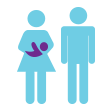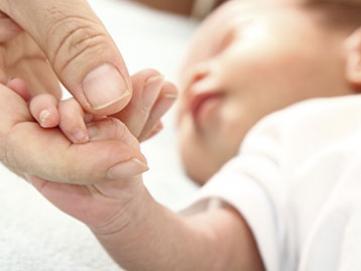“I may have LITTLE feet but I make BIG strides every single day”
Shoushan Vartanian was so excited to celebrate the news of her pregnancy with her first child. Unfortunately, her happiness did not last very long. She was 4 months pregnant when she found out there is something wrong with her baby. Baby Sarkis Nareg was diagnosed with diaphragmatic hernia by ultrasound. “I remember every second of that year, all I needed was hope from the doctors that my baby has a chance to survive” says Shoushan.
Shoushan Vartanian was so excited to celebrate the news of her pregnancy with her first child. Unfortunately, her happiness did not last very long. She was 4 months pregnant when she found out there is something wrong with her baby. Baby Sarkis Nareg was diagnosed with diaphragmatic hernia by ultrasound. “I remember every second of that year, all I needed was hope from the doctors that my baby has a chance to survive” says Shoushan.Shoushan and her husband were very worried. They consulted with the director of newborn services at the American University of Beirut Medical Center. He explained that diaphragmatic hernia is a birth defect in which there is an abnormal opening in the diaphragm. The opening allows part of the organs from the belly to move into the chest cavity near the lungs. He advised that their baby can be treated by surgery to repair the diaphragm, and if there were no complications the baby will survive.“I wasn’t excited to prepare his room or buy him clothes or anything because I wasn’t sure if my baby was going to survive” says ShoushanThe surgery was to cost 25,000$ to 30,000 $ in addition to the cost of the NICU stay that ranges between 1,500$ to 2,000$ per day. The financial burden came next to get Shoushan and her husband worried, as they could not afford to pay this amount.“I started doing the math in my mind for the approximate total cost and got worried about the numbers” Razmik Vartanian explainsThey learnt about The Neonate Fund at the American University of Beirut dedicated to financially assist newborns admitted to the NICU at AUBMC and sought their help. The Neonate Fund committed to financially support baby Sarkis Nareg and give him this chance to survive.“When we learnt about the financial support by the Neonate Fund to do the surgery, we felt relieved and in safe hands” says ShoushanBaby Sarkis Nareg was born and 23 hours later he was in the surgery room for a lifesaving surgery. It was a difficult and delicate case and some babies do not survive due to this type of malformation, Sarkis Nareg was breathing with one lung. Fortunately there were no major complications and he made it.“When I entered the NICU after my baby’s surgery, the nurse gave me my baby immediately saying “hold your son closely” I started crying because it was at this moment that I felt I was a real mother” Shoushan Sarkis Nareg stayed in NICU for 22 days, after which he was discharged home fully healthy. He is now almost 3 years old and living his life to the fullest





 12%
12%



